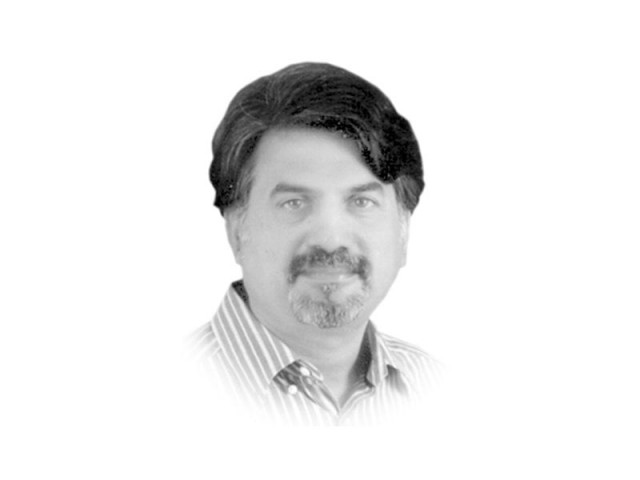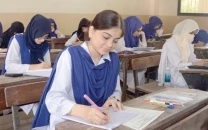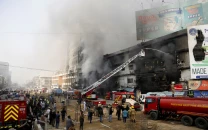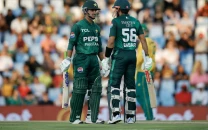Unclenching Taliban fists
Most Muslim countries that battled with Arab Spring only realised how important it was to keep their fists clenched

The writer is a member of the faculty of contemporary studies at National Defence University, Islamabad
Given the treatment being meted out to Muslim countries and the current confusion, doubt and mistrust generated by the Trump administration it is hardly surprising that the Taliban also continue to demonstrate their unwillingness to ‘unclench their fists’. A reminder of that is the deadly attack on October 18 in Kandahar that killed General Abdul Raziq, the local commander of NDS and the governor of Kandahar province Zalmay Wesa. An unfortunate incident but a great reminder of how deep is the Taliban’s (who claimed the responsibility of the attack) access and penetration to execute an ‘Afghan on Afghan’ attack of such damaging repute. Calling the parliamentary elections now being held in Afghanistan as a “foreign imposed process that goes against both Islam and Afghan culture” the Taliban have even called for there boycott. Although the whole international community has been encouraging Taliban to come forward and give up the politics of violence as well as their military ambitions and become part of the grand political reconciliation and settlement but not to any avail. What stops the Taliban from taking up the political route of reconciliation and what role can the major actors in the war in Afghanistan play to bring about a change in the strategic thinking of the Taliban? Are the Taliban even negotiable? One thing is sure — the harder the Afghan anti Taliban’s operations and Taliban crackdown the greater will be the ‘anger and resentment’ triggering Taliban’s counter violent actions which only means a lesser secure Afghanistan than even before.
The permanent presence of United States in Afghanistan is seen as a great strategic disadvantage by the Taliban, who have continued to link the American forces exodus from Afghanistan as the ‘non-negotiable condition’ for any peace process to begin. Therefore, the Taliban leadership continues with its military campaign that includes the hit and run operations as well as the suicide bombings with an idea to keep the ‘military pressure’ on the ‘occupying force’ until it realises the futility of its military campaign in Afghanistan. If American ‘hard power’ has failed to create the suitable and favourable political and military conditions on ground should we expect its soft power (diplomacy) to pay any strategic dividends?
Despite Pakistan’s influence and importance United States and the western world is not sure about the role Pakistan can play in Taliban’s rapprochement. In fact the United States has time and again reiterated that “Pakistan continues to adopt a policy which is against the US interests in Afghanistan.” Whereas Pakistan has been trying its best to explain its point of view but the consistent US mistrust and disbelief of Pakistan’s Afghan narrative has cost Pakistan its relationship with United States — which today is at its lowest ebb. This has forced Pakistan to internalise more on the western front — which means construction of border fences and check posts with the dual purpose of both not allowing the use of its own territory for any cross border infiltration and operations and also preventing the penetration of its own border from the other side.
The world accuses Pakistan but the ‘internal and external patrons and backers’ of the Taliban are many and come with different motives. Whether it is the ‘regional balance of power’ or acting as counter punch to the growing presence of the ISIS in Afghanistan, the external support is the true Taliban enabler that facilitates them to remain a matching violent competitor and an actor in the unending Afghan war. Taliban’s support must be choked to condition them to move towards the dialogue process. Instead of competing between themselves the various actors in the Afghan war need to cooperate in their unending efforts to degrade Taliban’s military capability and logistic and financial support.
There are multiple dimensions of the ongoing violence and war in Afghanistan. Reconciliation, ceasefire, return of refugees, their integration in civil life, reconstruction, rehabilitation, economic development all of this requires political will not only by the Afghan government but by the regional and global actors. Saudi Arabia under the new Crown Prince has tried to split the Taliban on ideological lines and in doing that it held in July 2018 in Jeddah a two-day International Conference of Muslim Scholars on ‘Peace and Stability in Afghanistan’ where the scholars claimed with one voice that “Taliban’s struggle for power in Afghanistan is illegal under the Islamic law.” China too is concerned and has a big motive considering its ever increasing economic, security and strategic interests in the region. China has already signed an agreement with Afghanistan to build a military base in northern Afghanistan. It is also urging Pakistan to externalise and not to politically recede and play an active role in Afghanistan.
Another dimension to the Afghan violence is the growth of Islamic movement. Created in 2014 the Islamic State of Khorasan Province has been gaining strength over a period of time. Weeding out the militant capability of this movement is also an urgent challenge for the international community. Else the breeding ground that Afghanistan is — it will continue to accommodate extremists and militant fighters getting free from fighting at other places. To nip this evil in the bud — Russia, China, Iran, Pakistan and all the Central Asian States may jointly vow to undertake their part in curbing the growth of this menace. Russia may undertake the leading role to develop a strategy to eliminate this threat through joint actions.
It is hoped that the next meeting of the ‘Kabul Process’ will look at the emerging threats and challenges confronted by Afghanistan and all actors in afghan war will overcome their personal interests to find out how to convince Taliban to ‘unclench their fist’. Without that happening peace in Afghanistan is a forgone conclusion.
Published in The Express Tribune, October 24th, 2018.
Like Opinion & Editorial on Facebook, follow @ETOpEd on Twitter to receive all updates on all our daily pieces.



















COMMENTS
Comments are moderated and generally will be posted if they are on-topic and not abusive.
For more information, please see our Comments FAQ